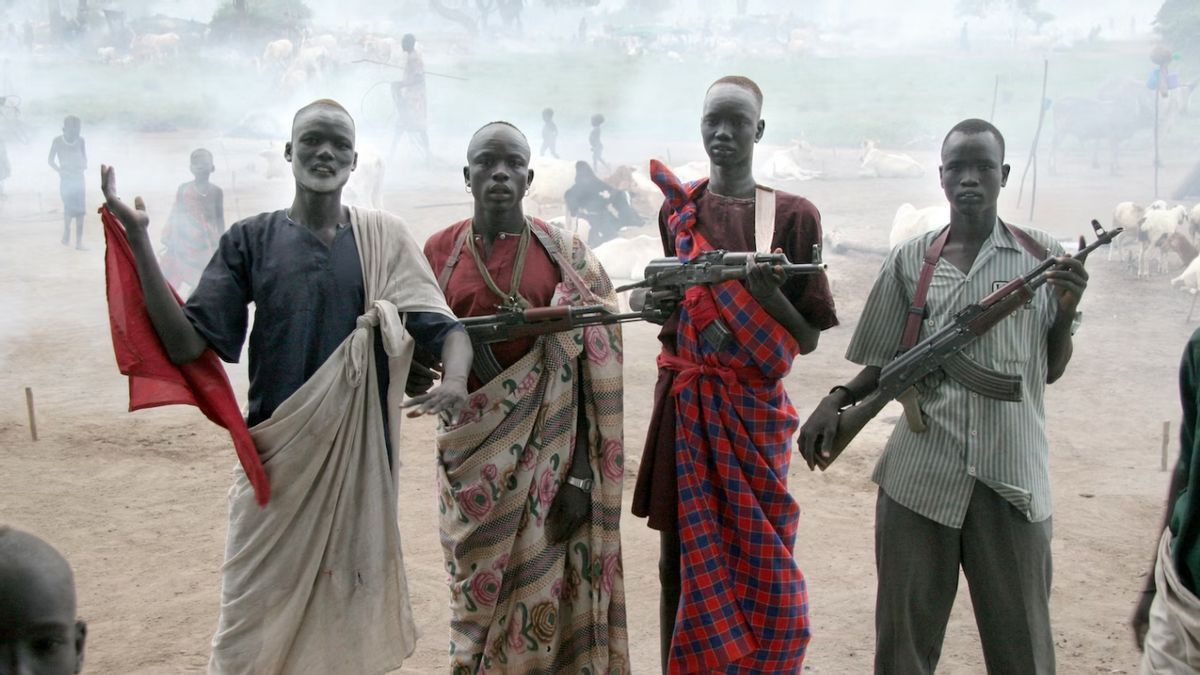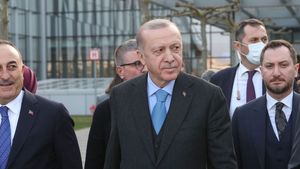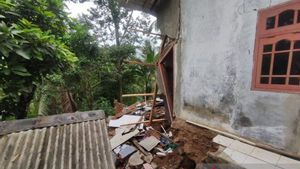JAKARTA - The World Health Organization (WHO) stated that 413 people died during the military fighting in Sudan and 11.5 million children and community members needed emergency water and sanitation services, 7 million children dropped out of school, and more than 600,000 children were malnourished.
According to Sudan's government data, 413 people were killed and 3,551 injured, WHO spokesman Margaret Harris said at a United Nations (UN) press conference on Friday, April 21.
Meanwhile, the UN children's agency (UNICEF) said at least nine children were reportedly killed in fighting in Sudan, and more than 50 children were seriously injured.
Margaret further said that 11 attacks had occurred on health facilities, including 10 attacks since April 15, 2023.
According to the Ministry of Health in Sudan, the number of health facilities that have stopped operating is 20. And still according to the Ministry of Health figures, the number of health facilities at risk of stopping is 12, "said Harris as quoted by ANTARA, Saturday, April 22.
This situation, he said, not only had an impact on victims of the fighting, but also other people who needed health services.
In the same press conference, UNICEF spokesman James Elder voiced his concern over the children who had to pay dearly for the deadly battle with many child casualties.
"We are now receiving reports that at least nine children were killed and at least 50 injured. That number will continue to increase as the fighting continues," he said.
Elder said many people in Sudan were trapped and had no access to electricity.
"They are afraid of running out of food, water and medicine. One of our serious concerns is about the hospitals being attacked," he said.
Elder further explained that prior to the latest military conflict, Sudan had become one of the countries with the highest rate of child malnutrition in the world.
"And we are now facing a situation where life-saving support is critical to about 50,000 children at risk," he said.
The fighting also poses a risk to the "cold chain" in Sudan, including for the procurement of vaccines and insulin worth more than US$40 million (approximately Rp597.4 billion) due to power supply cuts and the inability to recharge fuel generators.
UNICEF also received reports of children taking refuge in schools and treatment centers while fighting was raging around them, and children's hospitals were forced to be evacuated as gunfire got closer.
Elder said that before the escalating violence in Sudan, the humanitarian need for children in the country was high, with three-quarters of children estimated to live in extreme poverty.
At the same time, as many as 11.5 million children and community members need emergency water and sanitation services, 7 million children drop out of school, and more than 600,000 children suffer from severe acute malnutrition.
另请阅读:
Fighting erupted on April 15, 2023 between Sudanese soldiers (SAF) and paramilitary Rapid Support Forces (RSF) in the capital Khartoum and its surroundings.
Sudan has no government to function since October 2021, when the military dissolved Prime Minister Abdalla Hamdok's transitional government and declared a state of emergency in a move called a coup.
The English, Chinese, Japanese, Arabic, and French versions are automatically generated by the AI. So there may still be inaccuracies in translating, please always see Indonesian as our main language. (system supported by DigitalSiber.id)


















